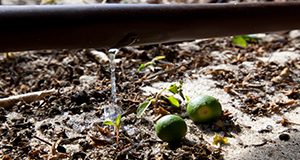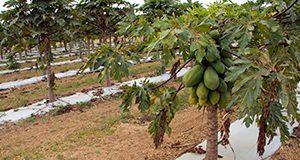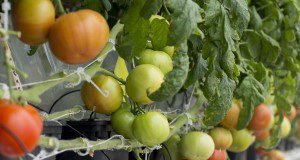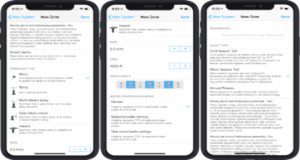Este documento provee un panorama básico de los factores más importantes al diseñar. Written by Haimanote K. Bayabil, Kati W. Migliaccio, Michael Dukes, Laura Vasquez, and Carlos Balerdi, and published by the UF/IFAS Department of Agricultural and Biological Engineering, December 2020.
https://edis.ifas.ufl.edu/ae549
Tag: Haimanote K. Bayabil
Programacion de Riego Basado en el Metodo de Evapotranspiracion Para Papaya (Carica papaya) en Florida
La papaya es un importante cultivo frutícola que se cultiva en el sur de Florida con un área estimada de 356 acres. Este documento se centra en las técnicas de programación de riego basadas en ET para la papaya en las condiciones de Florida. Written by Haimanote K. Bayabil, Jonathan H. Crane, Kati W. Migliaccio, Yuncong Li, Fredy Ballen, and Sandra Guzmán, and published by the UF/IFAS Department of Agricultural and Biological Engineering, November 2020.
https://edis.ifas.ufl.edu/ae547
Basic Tips for Designing Efficient Irrigation Systems
As freshwater resources become increasingly scarce and droughts become more frequent, there is a need for efficient use of water resources. Designing efficient irrigation systems and equipment will not only save money but also conserve water. This 10-page fact sheet discusses factors to consider when designing irrigation systems. Written by Haimanote K. Bayabil, Kati W. Migliaccio, Michael Dukes, and Laura Vasquez, and published by the UF/IFAS Department of Agricultural and Biological Engineering, February 2020.
https://edis.ifas.ufl.edu/ae539
Indoor Vertical Farming Systems for Food Security and Resource Sustainability
Indoor vertical farming has been gaining increased popularity worldwide as a method of addressing food security while satisfying sustainability needs. This 5-page fact sheet written by Jiangxiao Qiu, Haimanote K. Bayabil, and Yuncong Li and published by the UF/IFAS School of Forest Resources and Conservation provides a comprehensive summary of the current status of indoor vertical farming in the United States and globally, commercial derivatives, major sustainability benefits and limitations and challenges. Learn about the limitations and challenges of the industry as well as the potential benefits both for food security and resource sustainability.
https://edis.ifas.ufl.edu/fr429
ET-Based Irrigation Scheduling for Papaya (Carica papaya) in Florida
Three irrigation scheduling methods (set schedule, ET-based, and tensiometer-based) were tested for papaya production in south Florida. ET-based irrigation scheduling was found to conserve water effectively. This 6-page document primarily focuses on the ET-based irrigation scheduling techniques for papaya under Florida conditions. Written by Haimanote K. Bayabil, Jonathan H. Crane, Kati W. Migliaccio, Yuncong Li, and Fredy Ballen, and published by the UF/IFAS Department of Agricultural and Biological Engineering, March 2020.
https://edis.ifas.ufl.edu/ae540
Smartirrigation Apps: Urban Turf
As freshwater resources become increasingly scarce, efficient irrigation scheduling methods that allow efficient irrigation water uses are required. Migliaccio et al. (2016) have developed an app called Smartirrigation Turf, an easy-to-use mobile tool that delivers information to improve irrigation scheduling for urban turf. The app was only available for Florida and Georgia, but recently, we have made improvements to the app and made it available to any location throughout the contiguous United States. The 7-page major revision, written by Haimanote K. Bayabil, K. W. Migliaccio, J. H. Debastiani Andreis, C. Fraisse, K. T. Morgan, and G. Vellidis, and published by the UF/IFAS Department of Agricultural and Biological Engineering, describes the changes made on the recently released Smartirrigation Turf app.
https://edis.ifas.ufl.edu/ae499




